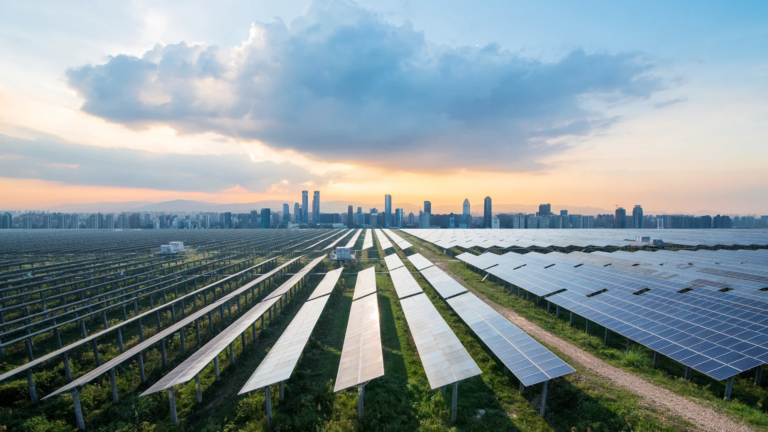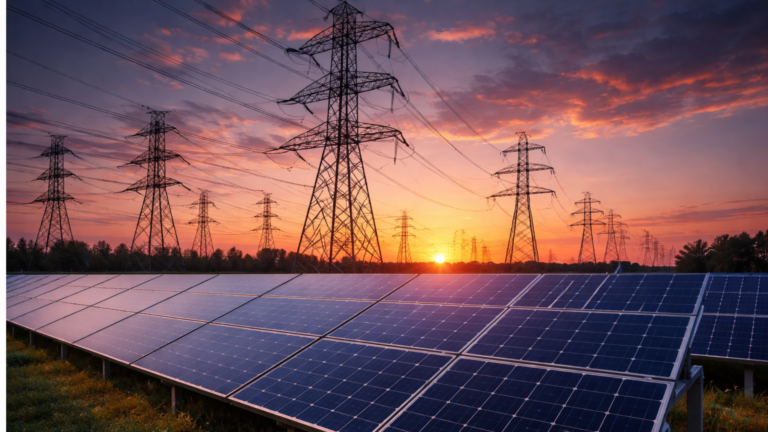Regulatory Developments in Power Generation Sector: June 2, 2025
Author: PPD Team Date: June 2, 2025

APTEL orders tariff re-determination for GI Hydro project
The Appellate Tribunal for Electricity (APTEL) on 26 May 2025 directed the Haryana Electricity Regulatory Commission (HERC) to re-determine the tariff for the 110 MW Chuzachen hydroelectric project in Sikkim, developed by GI Hydro Pvt Ltd (formerly Gati Infrastructure). The Tribunal held that HERC wrongly applied its 2012 MYT Regulations instead of the Central Electricity Regulatory Commission (CERC) Tariff Regulations, 2014.
GI Hydro had filed an appeal challenging HERC’s 23 February 2022 order, which set a single-part levelized tariff based on outdated state regulations. The hydro project achieved commercial operation in May 2013 and began supplying power to Haryana in May 2018. A Power Purchase Agreement (PPA) with the Haryana Power Purchase Centre (HPPC) was signed in 2020, though supply had already commenced under an initialled PPA.
APTEL found HERC’s application of its own MYT Regulations, 2012, flawed on multiple counts. First, the state regulations had expired on 31 March 2018, and their retrospective extension through a 2018 amendment was legally untenable. At the time of filing the tariff petition in August 2018, only CERC Tariff Regulations, 2014, were in force. APTEL noted that under the Electricity Act, state commissions can frame their own tariff regulations, but cannot retrospectively enforce them without specific legal authority.
Second, the Tribunal ruled that HERC’s MYT framework was not equipped to determine tariffs for large inter-state hydro plants like Chuzachen. The MYT Regulations only provided single-part tariffs suitable for small canal-based projects. In contrast, the CERC framework accommodates two-part tariffs, cost escalation, and inter-state scheduling—critical for cost-reflective pricing in this case.
APTEL also faulted HERC for disregarding revised design energy figures approved by the Sikkim government and for disallowing legitimate post-COD capital expenditure. GI Hydro had claimed that transmission constraints and force majeure events led to sustained under-generation. The Tribunal found HERC’s refusal to revise design energy and its tariff computation from FY 2017 without accounting for actual generation unjustified.
The Tribunal directed HERC to re-determine the tariff in accordance with CERC Tariff Regulations, 2014, within three months.
Appeal No. 85 of 2022 & IA No. 1810 of 2024 | Read the full order here.
APTEL grants partial relief to Mahagenco in tariff true-up dispute over Parli plant and carrying cost
The Appellate Tribunal for Electricity (APTEL) on 26 May 2025 ruled on Appeal No. 281 of 2017 filed by Maharashtra State Power Generation Company Ltd (Mahagenco), challenging Maharashtra Electricity Regulatory Commission’s (MERC) orders from 2016 and 2017 that disallowed key cost components in the true-up of tariffs for FY 2014-15 and FY 2015-16.
Mahagenco contested three key issues. First, MERC had denied Rs 225.46 crore in actuarial valuation costs towards employee terminal benefits, citing it was only a provision and not actually paid. APTEL upheld the disallowance, agreeing that tariff recovery requires prudence checks and actual incurrence of expenses.
Second, the Commission had denied full Annual Fixed Cost (AFC) recovery for the Parli Thermal Power Station for FY 2014-15, despite its reduced performance due to severe drought in Marathwada. APTEL reversed this finding. It held that water scarcity during that year was an uncontrollable, force majeure event and noted Mahagenco’s active efforts, including investment of Rs 142 crore in a state-initiated lift irrigation scheme. The Tribunal directed that full AFC be allowed at actual availability and actual performance parameters without sharing gains or losses.
Third, the Tribunal partly upheld Mahagenco’s claim for carrying cost on the revenue differential of Rs 254.32 crore. MERC had denied any carrying cost, citing prior data submission errors by the utility. APTEL found this reasoning flawed. It allowed carrying cost on Rs 169.46 crore that was previously approved in a 2015 mid-term review but denied it on the additional Rs 84.86 crore revised in 2016, which was due to Mahagenco’s own deficiencies. APTEL directed MERC to take consequential steps to comply with the judgment.
Appeal No. 281 of 2017 | Read the full order here.
APTEL directs MERC to revisit cost disallowances for Mahagenco’s Parli and Chandrapur plants
On 26 May 2025, the Appellate Tribunal for Electricity (APTEL) ruled in Appeal No. 130 of 2019, partly in favour of Maharashtra State Power Generation Company Ltd (Mahagenco), directing the Maharashtra Electricity Regulatory Commission (MERC) to revisit disallowed claims related to working capital interest, capitalisation, and water shortages at two thermal plants.
The appeal challenged MERC’s December 2018 review order in Case No. 336 of 2018, which itself followed a September 2018 tariff order. Mahagenco had sought relief on several grounds, including denial of interest on working capital (IoWC), annual fixed cost (AFC) recovery, and cost elements disallowed in the true-up for FY 2015-16 to FY 2017-18.
APTEL ruled in favour of Mahagenco on the treatment of advance payments for coal and railway freight. The Tribunal directed MERC to factor in advance payments when calculating working capital requirements for FY 2016-17 to FY 2019-20. This reverses MERC’s prior position that such payables should be treated as nil.
On AFC recovery for Parli Thermal Power Station, APTEL allowed full recovery without performance-linked sharing. The Tribunal found that MERC had unjustly denied full AFC despite acknowledged drought conditions and state-imposed water restrictions during the relevant years. A similar approach was adopted for a water shortage claim at Paras and Chandrapur thermal stations, which was remanded for reconsideration based on earlier findings in Appeal No. 281 of 2017.
However, APTEL upheld MERC’s treatment of delayed payment surcharge (DPS) and its deduction from actual IoWC in FY 2016-17, rejecting Mahagenco’s claim that the DPS should not offset working capital costs.
Three other issues—disallowance of employee costs under Other Comprehensive Income, and additional capitalisation due to a High Court order—were remanded for fresh review. APTEL asked MERC to complete re-examination within two months, considering new data and past regulatory directions.
Appeal No.130 OF 2019 | Read the full order here.
APTEL allows Rana Sugars to rectify SLDC portal error
In a key ruling issued on 28 May 2025, the Appellate Tribunal for Electricity (APTEL) allowed Rana Sugars Limited to rectify a data error it had made in the State Load Dispatch Centre (SLDC) portal, reversing a 2022 order by the Uttar Pradesh Electricity Regulatory Commission (UPERC). The case stems from incorrect declared capacity (DC) entries between October 2020 and January 2021 from Rana Sugars’ 27.4 MW bagasse-based plant in Moradabad, which led to bill payment disputes with UP Power Corporation Ltd (UPPCL).
The company, which has a Power Purchase Agreement (PPA) with UPPCL for exporting surplus power, had erroneously uploaded only 25% of its actual DC in each 15-minute block as required by UPERC’s Captive and Renewable Energy Generation Plant Regulations, 2019. This discrepancy went unnoticed by SLDC and UPPCL until January 2021. Once discovered, UPPCL withheld payments for exported power from October 2020 onward, citing a mismatch between actual export and declared data.
Rana Sugars approached UPERC seeking rectification under its inherent powers. However, the Commission dismissed the plea on 15 March 2022, citing a prior decision in a similar case involving Sukhbir Agro Energy Ltd., where it held that rectifications must occur within five days as per clause 6.5.25 of the Uttar Pradesh Electricity Grid Code 2007.
APTEL, however, ruled that clause 6.5.25 was “inchoate” and failed to account for situations involving bona fide errors not detected within five days. It emphasized that such gaps should be addressed by the Commission using its regulatory powers. Relying on a recent Supreme Court judgment affirming regulators’ authority to act beyond rigid timelines in the interest of justice, the Tribunal held that the Commission erred in refusing Rana Sugars’ request.
The Tribunal directed SLDC to allow Rana Sugars to correct the data for December 2020 to January 2021 within a month. UPPCL was ordered to settle all related unpaid tariff bills from October 2020 onward, along with applicable carrying costs under the PPA, within two months.
Appeal No.185 OF 2022 | Read the full order here.
CERC rejects half of SECI’s 100 MW wind tariff plea over RfS violations
The Central Electricity Regulatory Commission (CERC) has approved the tariff for only 50 MW of wind power out of the 100 MW sought by Solar Energy Corporation of India (SECI) under Tranche XVII. The remaining 50 MW, awarded to Adyant Enersol Private Limited, was denied tariff adoption due to non-compliance with the bidding guidelines.
The petition under Section 63 of the Electricity Act, 2003, sought adoption of tariffs discovered via competitive bidding for 100 MW of Inter-State Transmission System (ISTS)-connected wind projects. SECI had conducted the bidding in line with the Ministry of Power’s guidelines dated 26 July 2023.
Powerica Limited was awarded 50 MW at Rs 3.81/kWh after a transparent bidding and e-reverse auction process. However, Adyant Enersol, which bid Rs 3.82/kWh, initially qualified for 46 MW. Due to a regulatory requirement that ISTS-connected projects have a minimum capacity of 50 MW, SECI unilaterally increased Adyant’s allocation to 50 MW to avoid losing the capacity. SECI later obtained in-principle consent from the Bihar State Power (Holding) Company Limited (BSPHCL) and signed Power Sale Agreements (PSAs) accordingly.
CERC found that this adjustment violated Clause 43.4 of the Request for Selection (RfS), which mandates that no single project below 50 MW be awarded. It held that SECI failed to demonstrate any clause in the RfS or Wind Guidelines that justified enhancing Adyant’s capacity to 50 MW beyond the calculated selection extent (SE) of 96 MW. As the Evaluation Committee had also not recommended Adyant’s award, the Commission concluded that the allocation did not follow a transparent bidding process.
CERC adopted the tariff of Rs 3.81/kWh for Powerica Limited’s 50 MW and approved the trading margin of Rs 0.07/kWh payable to SECI, subject to compliance with payment security norms. It declined to adopt the tariff for Adyant’s 50 MW due to procedural lapses.
Petition No. 62/AT/2025 | Read the full order here.
JSERC clears Annual Performance Review for Inland Power FY 2024-25
The Jharkhand State Electricity Regulatory Commission (JSERC) has issued its order on the Annual Performance Review (APR) for Inland Power Limited (IPL) for the financial year 2024-25. Dated May 27, 2025, the order reviews IPL’s operational and financial parameters for its 63 MW thermal power plant located in Gola, District Ramgarh.
The Commission examined IPL’s projections, with a focus on deviations from normative benchmarks. It approved a Plant Availability Factor (PAF) of 84.88% and capped auxiliary consumption at 10.50%. The Energy Charge Rate (ECR) was fixed at Rs 3.79/kWh—lower than IPL’s proposed Rs 3.89/kWh—after accounting for operational efficiencies and fuel cost revisions.
One of the key issues was the high landed cost of primary fuel, which IPL attributed to changes in coal sources and blending ratios. JSERC directed IPL to formulate a cost-optimized fuel procurement strategy.
On the financial front, fixed costs—including depreciation, loan interest, and return on equity—were recalibrated to Rs 82.93 crore. Non-tariff income was set at Rs 10.27 crore, based on benchmarks from the previous fiscal year.
Ranchi Case (Tariff) No.: 03 of 2025 | Read the full order here.
JSERC approves true-up for Inland Power for FY 2023-24
The Jharkhand State Electricity Regulatory Commission (JSERC) has issued its final order on the True-up for Inland Power Limited (IPL) for the financial year 2023-24. The order, dated May 27, 2025, reviews IPL’s operational and financial performance, highlighting underperformance in plant efficiency and adjustments to cost claims.
IPL, which operates a 63 MW thermal power plant in Gola, District Ramgarh, reported a Plant Availability Factor (PAF) of 74.35%, falling short of the normative 82.50%. The shortfall was attributed to a plant shutdown for exciter system replacement. Although JSERC acknowledged the explanation, it reiterated the need for improved operational reliability. Auxiliary consumption was recorded at 12.88%, exceeding the normative 10.50%, a deviation linked to the plant’s Circulating Fluidized Bed Combustion (CFBC) technology.
The Energy Charge Rate (ECR) was approved at Rs 4.11/kWh, slightly below IPL’s claimed Rs 4.24/kWh, reflecting adjustments for actual fuel costs and lower generation levels. On the financial side, JSERC reduced IPL’s depreciation claim from Rs 17.46 crore to Rs 14.66 crore, and the Return on Equity (RoE) from Rs 15.01 crore to Rs 13.80 crore.
Claims related to IPL’s fly ash business were also moderated, with only Rs 1.84 crore in net revenue approved against higher projections. The Commission finalized the total Aggregate Revenue Requirement (ARR) at Rs 216.23 crore, compared to IPL’s claim of Rs 224.35 crore, identifying a surplus of Rs 10.64 crore. JSERC has directed IPL to refund this amount to its sole beneficiary, Jharkhand Bijli Vitran Nigam Limited (JBVNL).
Case (Tariff) No.: 01 of 2025 | Read the full order here.
TGERC defers decision on 800 MW Singareni thermal power procurement
The Telangana Electricity Regulatory Commission (TGERC) has deferred its decision on approving the procurement of 800 MW from Stage-II of the Singareni Thermal Power Project (STPP), following a request from the state’s power distribution companies (TGDISCOMs) for additional time to reassess the proposal.
The order, dated 17 May 2025, came after a public hearing where stakeholders raised concerns regarding coal linkage, project location, and the long-term viability of the plant.
TGDISCOMs initially petitioned for consent to procure power from the 800 MW unit for 25 years, citing increasing energy demand driven by Telangana’s electric vehicle policy, expanding data centers, and metro rail projects. The proposal was consistent with the Central Electricity Authority’s (CEA) projections and the state’s resource plan, which forecasted supply deficits starting in 2028–29. However, during the hearing, TGDISCOMs requested a deferral to revisit the project’s feasibility and promised to submit a revised proposal.
TGERC closed the petition while allowing TGDISCOMs to refile after thorough reassessment.
Petition No. O. P. No. 30 of 2025 | Read the full order here.
TGERC approves 800 MW from NTPC’s Telangana Super Thermal Power Station, rejects 2,400 MW offer
The Telangana Electricity Regulatory Commission (TGERC) has approved the procurement of 800 MW from Stage-II of NTPC’s Telangana Super Thermal Power Station (TSTPS) for 25 years, while rejecting NTPC’s full offer of 2,400 MW (3×800 MW). The order, dated 17 May 2025, balances Telangana’s rising energy demand with its renewable integration targets, addressing stakeholder concerns around tariffs, grid stability, and competitive procurement.
The approved 800 MW unit will operate at an indicative first-year tariff of Rs 4.12 per kWh and a levelized tariff of Rs 3.81 per kWh, subject to final determination by the Central Electricity Regulatory Commission (CERC). Telangana limited procurement from NTPC to avoid excess capacity, referencing the Central Electricity Authority’s (CEA) forecast of a 1,302 MW deficit by 2029–30.
TGERC emphasized the importance of thermal power for meeting base load requirements during non-solar hours, despite the state’s ambition to achieve 20,000 MW of renewable capacity by 2030. The Commission noted that battery energy storage systems and pumped hydro projects currently cannot fully substitute thermal generation in the near term.
While stakeholders urged competitive bidding and pointed to lower solar and wind tariffs below Rs 3 per kWh, TGERC recognized the intermittency challenges of renewables and affirmed the role of thermal power in ensuring grid reliability. The order also mandates connection to Telangana’s state grid (TGTRANSCO) to avoid interstate transmission charges, reducing costs.
Going forward, TGDISCOMs must obtain TGERC’s approval for the Power Purchase Agreement (PPA) and ensure all future procurements follow competitive bidding under Section 63 of the Electricity Act.
Petition No: O. P. No. 31 of 2025 | Read the full order here.
For more regulatory updates, read the latest orders covered on Power Peak Digest: Energy Regulatory Updates – Power Peak Digest
Featured photograph is for representation only.





